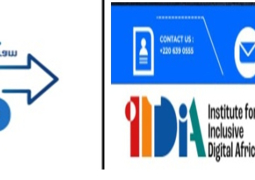
The move is designed to promote transparency, efficiency and accountability within their units.
The mandated procuring entities include: the National Road Authority(NRA), the Office of the President, Edward Francis Small Teaching Hospital(EFSTH), Social Security Housing Finance(SSHF), Kanifing General Hospital, Bundung Maternal and Child Hospital, Gambia Maritime Authority, National Audit Office, Bansang General Hospital, Gambia Revenue Authority, Ministry of Basic and Secondary Education, Ministry of Agriculture, Ministry of Finance and Economic Affairs, Ministry of Tourism and Culture, Bwaim General Hospital, Gambia Ferry Service, Ministry of Public Service, Administrative Reform, Policy Coordination and Delivery, Gambia Printing and Publishing Corporation, Gambia International Airlines, Gambia OIC Secretariat, Farafeni General Hospital, Ministry of Science and Technology, Ministry of Petroleum and Energy, Ministry of Foreign Affairs, International Cooperation and Gambians Abroad's, Ministry of Justice, Ministry of Defence, and Ministry of Trade, Industry, Regional Integration and Employment.
During the ceremony, Phoday M. Jaiteh, the director of GPPA, said: “Decentralisation in Public Procurement brings forth a multitude of effects and impacts, all poised to positively shape the efficiency and effectiveness of their procurement processes.
He added that by empowering these institutions to conduct procurements at the institutional level without prior approval requests to the Gambia Public Procurement Authority (GPPA), suggests they are not merely streamlining procedures, but also fostering a culture of autonomy and accountability.”
He further stated institutions with procurement responsibilities must maintain high standards of transparency and integrity. This fosters responsibility and judicious use of public funds. “Each organisation will undergo a review after two years. The Authority will also conduct post-reviews of all annual procurements,” he noted.
Ibrahim Sanyang, the director of procurement policy and operations, said authorised entities must invest in the training and development of their procurement personnel to equip them with the necessary skills and competencies to navigate the complexities of procurement efficiency.
“Authorisation is not a blank cheque. The policy framework places a strong emphasis on performance monitoring and evaluation, through the procurement portal. Hence, authorised institutions are required to submit through modules using the procurement portal which has a robust monitoring mechanism to track the effectiveness and efficiency of their procurement processes continually.”
“By regularly evaluating performance against predefined indicators and benchmarks, institutions can identify areas for improvement and implement corrective measures proactively.”
The deputy permanent secretary at Ministry of Finance and Economic Affairs (MoFEA), commended the dedication and commitment of authorised institutions. However, he reminded them that “to whom much is given, much is expected.”
“This authorisation therefore comes with a great responsibility – a responsibility to uphold the highest standards of integrity, fairness, and efficiency in all your procurement activities,” he further reminded. “Hence, I urge you to embrace this responsibility wholeheartedly and to strive for continuous improvement in your procurement processes.”
Read Other Articles In Headlines

Gambia launches BANTABA 2.0, first real-time interoperable payment system
Dec 15, 2025, 11:20 AM
NALA ordered to provide legal representation to man charged with robbery, assault
Oct 30, 2025, 11:22 AM



